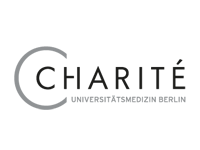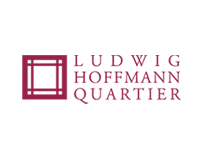Timeline
"The reason Berlin knows so little about Buch is because of the helter-skelter way our city has expanded. Most people in the socially dominant West have never heard of Buch or only know of it as a place on the map."
Adolf Wermuth 1922
Mayor of Berlin 1912 - 1920
We are grateful to Mr. Rainer Schütte for friendly support.
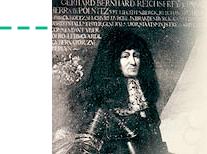
1342
Buch was first mentioned in 1342. Up to the 17th century it was the home of a succession of members of the landed gentry of Bredow, Wiltberg and Röbell and Schmetstorp. In 1669 Baron von Pölnitz acquired the estate. Some of the streets in Buch still carry the names of these former nobles.
1724
In 1724, the secret budgetary council of VIERECK bought the property from the Polnitz estate. It was responsible for the construction of the Baroque church from 1731 to 1736 and conversion of the country house in the baroque style into a castle. Shortly after this the orangery was constructed. The Viereck era of the von VOSS family followed in 1761 and they allowed further conversion of the castle in 1881.
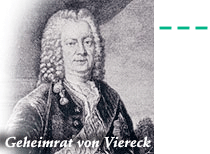
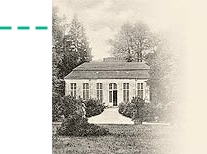
1898
In 1898 the City of Berlin bought the complete property with the castle, the park, estate and agricultural land for 3.5 million Reichsmarks. On the large open areas the city created what was at that time the most up to date city water supply system; it was proposed by Rudolph Virchow and installed by the head of city planning James Hobrecht.
1900
Between 1900 and 1920 five hospital complexes were built on other sites for "Insanity", Breast Disease" and "Elderly", planned and built by the Berlin city head of town planning, Ludwig HOFFMANN. At that time it was the largest hospital complex in Europe with 5,000 patient beds.
More about the history of the complexes
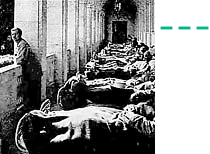
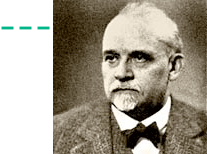
1930
In 1930 the Kaiser Wilhelm Institute for Brain Research moved into a new laboratory building, set up right next to the Buch clinics. The institute, which was found in 1914, formed the nucleus of the medical biological Institute of the GDR Academy of Sciences in 1947. In 1963 Hoffmann's clinic complex became the Buch Clinic.
Photo: Brain researcher Oskar Vogt (1870-1959)
1964
From 1898 to 1920 the castle served as the summer home of the mayors of Berlin. The castle and estate survived the war without major damage. However, indifference and arbitrary decisions by the authorities led to the demolition of the orangery (1955) and castle (1964). This meant that valuable historic monuments and important historic points of reference for Buch were lost.
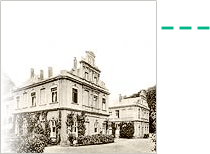
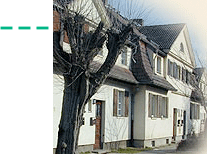
1970
The development of Buch into a major hospital complex is closely associated with its expansion as a place to live. One- and multiple-family accommodation and then large housing developments were set up in the 1970s and 1980s and the village became part of the city.
1981
In 1981, the Buch estate became a complex of studios and workshops for artists and was given up in 2002 by the Berlin Senate on economic grounds.
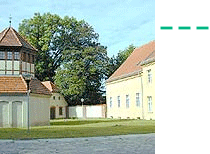
News Buch Berlin
Leif Si-Hun Ludwig awarded professorship
Leif Si-Hun Ludwig has been awarded a prestigious Heisenberg professorship in stem cell dynamics and mitochondrial genomics by the the Berlin Institute of Health at Charité, a position funded by the G...
more ...Professorship awarded to Mina Gouti
Mina Gouti has been awarded a professorship at Charité – Universitätsmedizin Berlin. The appointment will strengthen her pioneering organoid research at the Max Delbrück Center and deepen collaboratio...
more ...Pentixapharm publishes positive Phase II data on Pentixafor PET diagnostics
The study confirms PENTIXAFOR-PET as a non-invasive alternative to adrenal vein catheterization in primary aldosteronism
more ...Events Buch Berlin
27.02.2026, 19:00
Filmabend und Gespräch: "Nah am Herzen" - über den Krieg in der Ukraine
Ukrainischer Spielfilm mit deutschen Untertiteln
more ...27.02.2026, 20:00
Comedy - Achtung, Zwerchfellattacke - Thomas Nicolai präsentiert "Mit alles! Extrascharf!"
Thomas Nicolai serviert seinen Gäste extrascharfe Häppchen
more ...28.02.2026, 17:00
Wunderwerk der Mechanik
Führung und Experimentalvorträge im Speicher
more ...



